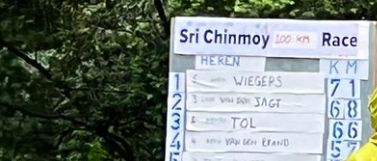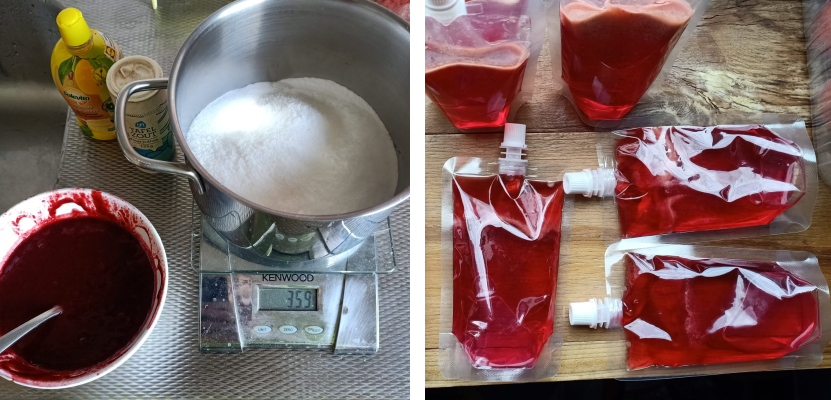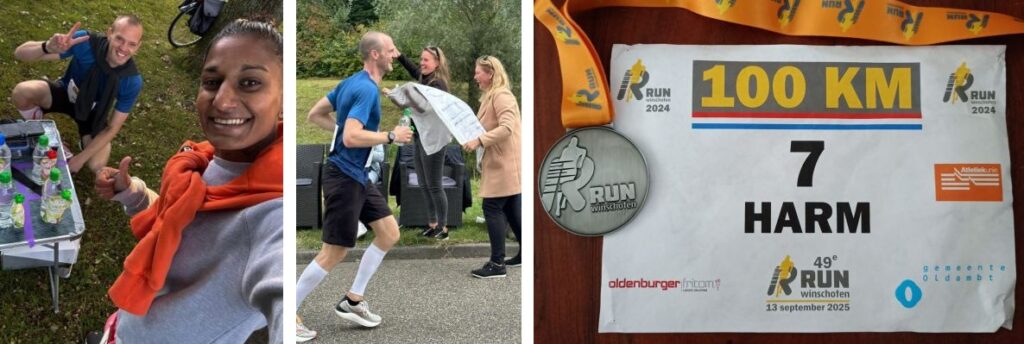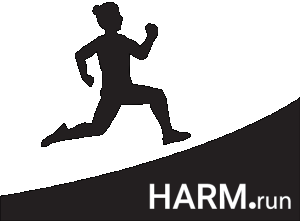
Sometimes we show our best when there’s a lot at stake. My qualification earlier this year for the 100k World Championships in December 2024 changed the way I look at training. If there was ever a moment to prepare, it must be now. I’m learning how pressure can be our friend.
We all have this romantic picture of rising to the occasion on the big day. Hoping to be so lucky as to have some magical process passively bestowed upon us, rendering us able to outperform ourselves. I too used to cherish this false belief. That’s why like so many runners, during my first marathon years ago, I started out at a higher pace than I had actually trained for. It didn’t end well, as the second half of that marathon was slow and tough, and the finish time not very close to what I’d hoped for. But I’m recently discovering that rising to the occasion has nothing to do with hope and that it’s in no way passive. This lesson’s a firm antidote to relying on hope.

While trying to run the qualification limit of 100k in 8 hours (race report here), I was convinced this wasn’t about the Championships. After all, enough men had already qualified to fill the available slots, and they were all faster than me. And why travel to India to run a race you would never win anyway? It was just for the fun of measuring oneself against such a limit.
But in the aftermath, friends helped me change my mind. I had quit my job to see where running could get me, and what more was there to reach than running the World Championships? Sometimes big events can question us what we’re doing it all for. They force us to obtain clarity on what drives us. This question about drive percolated in my head for some time, and when I heard there was a slot available, my motivation was suddenly crystal clear.

But after dreaming comes preparation.
One of the requirements for committing to this event is maintaining your level of fitness. One strategy would be to keep training in the same way, and hope to pull off a sub-8hour once again in December. We often employ this strategy when faced by a deadline, sticking to the same familiar habits, not changing much but hoping to reach the required result. But running with your country’s name on your back is of such serious caliber that I felt the responsibility to not leave much to chance. Just like an important exam, a job interview or any of our life’s important landmarks: if we want to do it right or go for an A+, hope is a poor strategy. Of course we cannot decide how the future plays out, but the closest we can get is to shoulder responsibility and replace hope and chance with diligent preparation.
“Would you rather rely on hope and chance, or on diligent preparation?”
Preparation for such a big event asked for more than simply doing more of the known: increasing mileage and doing some speed work. So I prepared for the last 100k checkpoint-race and started not just optimizing the training, but also researching for new insights on adjacent habits (the less-known). When the stakes are high, we pull all the levers that can contribute. Before an important presentation, we not only memorize, but also work on our body language, study possible questions and even go to bed early. For a first date, we don’t just pick a nice venue, but also iron our shirt, think of the right personal questions, and clean up the kitchen just in case. In the same way, I studied carbs and made my own race nutrition, implemented strength and mobility exercises, improved sleeping hygiene, cut back alcohol and caffeine intake, and even worked on changing negative self-talk.
Studying race nutrition and making gels at home. Ran last race at 120g of carbs per hour

A sturdier foundation can support a taller building. Just like that, improving interrelated tiny habits can raise our baseline upon which we build our greatest achievements. On our big day, we shouldn’t hope to be so lucky as to rise to the occasion, but instead have prepared a foundation strong enough to facilitate our big achievement. For as James Clear once said so beautifully: we don’t rise to the level of our goals, we fall to the level of our systems.
There’s one more step. We can only optimize the things we know. In his book about unforeseen events, Nassim Taleb writes about how we don’t know what we don’t know. The limits of our knowledge also limit the ideas we come up with for improvement. Luckily, there’s a cheat code to reach beyond the limits of our own knowledge and creativity. Friends inspired me to reach out to an experienced coach, and his expertise in not just training but areas unknown to me will facilitate improvements I could not have thought of myself. This way, preparations are made to improve the known, the less-known and the unknown.

The pressure of a large deadline forces us to focus. In the absence of pressure, we feel like we can afford to coast and delay even the things we find important in our heart of hearts. Like life is just a prelude, or a dress rehearsal. But under pressure, we experience that this is a great lie. The gift of pressure is that it asks us: no bullshit, what would it take to reach this goal? This can mean finishing a project on time, or in my case, getting as much quality as possible in the time left. We transcend ourselves when we ask what it would look like if it were an A+, and then act on that.
What’s an important deadline or achievement you are working towards? And to raise the pressure we have befriended today: what would your preparation look like if it were an A+? How could you optimize the known and research the less-known? How could you cheat and even improve the unknown?
References:
-James Clear, author of the book Atomic Habits. Valuable insights, for example on how to tweak and combine tiny habits to create sustainable changes in our lives. Recommended reading.
-Nassim Taleb’s book The Black Swan
(the book is about randomness and is not related to running)
–No bullshit, what would it take? I’ve learned this way of creative questioning from Tom Bilyeu. He uses this question to explore if certain ideas are really that impossible, or if we just lack faith in our own creativity and ability.
From the Impact Theory podcast, episodes from before 2023 (later episodes have sadly become less relevant)

Leave a Reply